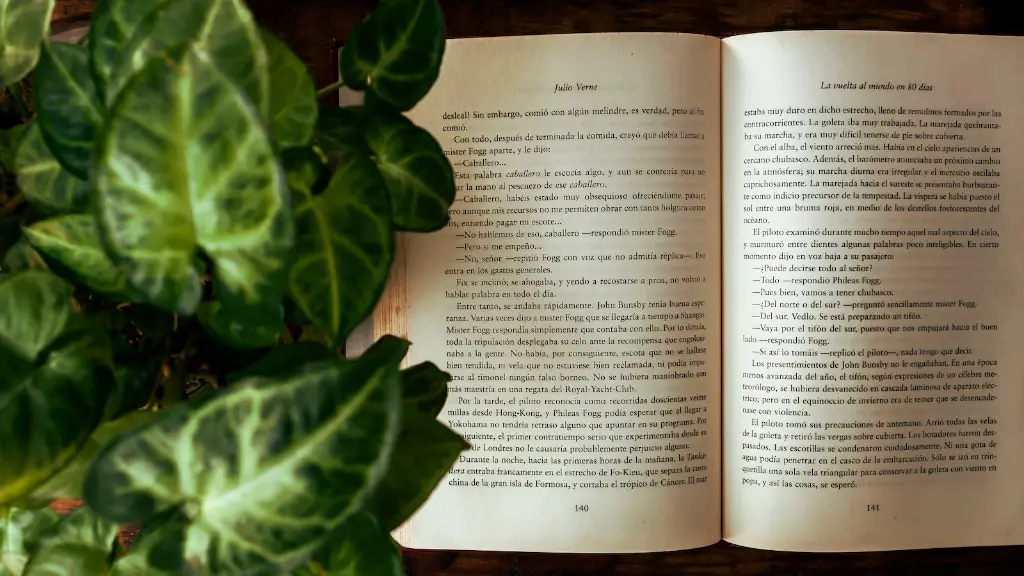Definition of a Poetry Book
Poetry books contain a collection of poems written by one or more poets. Usually, these collections of poems are either grouped together by the theme of the poems or by the poet’s style. These books may also contain illustrations, drawings or photographs to help create a visual representation of the poet’s themes or ideas. Poetry books are typically published by Poetry publishers. The poems contained in a poetry book may take various forms — sonnets, odes, elegies, free verse, free-form poetry, etc. Some of the most famous poets in history wrote their work in the form of poetry books, including Robert Frost, William Wordsworth and William Shakespeare.
History of Poetry Books
The history of poetry books goes back to ancient times. Early examples of poetry books include the Epic of Gilgamesh from Mesopotamia, the Rigveda from India, and the Iliad and Odyssey from Ancient Greece. In medieval times, poetry books were written by poets such as Geoffrey Chaucer, Dante Alighieri, and Giovanni Boccaccio. During the Renaissance period, poetry books by writers such as Michelangelo, John Donne and William Shakespeare were published and studied. Even during the Victorian era, poetry books by famous writers such as Alfred Tennyson, Robert Browning and Elizabeth Barrett Browning were popular.
Current popularity of Poetry Books
Poetry books are still popular and widely read today, although not to the same extent as in the past. This is likely due to the fact that many people prefer to read poems online or on their mobile devices, rather than buy physical copies of poetry books. Despite this, there has been an increase in the number of new poetry books being published in recent years, with many poets taking advantage of the ease of digital publishing to self-publish their collections. This has enabled more authors to get their work out there and to gain audiences.
The Benefits of Reading Poetry Books
Reading poetry books is an enjoyable pastime for many. Not only does reading poems provide an escape from the mundane, but it can also help to increase knowledge of literary skills such as vocabulary, literary devices and grammar. Because poems are often short and concise, they can be read quickly, meaning that a large number of poems can be read within a short period of time. In addition, reading poetry books can provide insight into the poet’s thoughts and feelings, as well as allowing readers to appreciate the beauty of language and the power of words.
The Types of Poetry Books
The most common type of poetry book is an anthology, which is a collection of poems by multiple authors. Anthologies are typically divided by theme, such as love, nature, death, etc. Other types of poetry books include collections of the works of a single poet, single-author collections, and chapbooks, which are small, usually inexpensive books of poetry. There are also books that are a combination of prose and poetry and even books that are dedicated to a single poem or a series of poems.
The Various Forms of Poetry
Poetry books can also vary greatly in terms of the type of poetry they contain. Some of the most popular forms of poetry include sonnets, haiku, ballads, epics, odes, elegies, and free verse. Sonnets in particular are often included in poetry books due to their concise structure and emotional power. Haiku, on the other hand, are short and often use nature-based imagery to convey a particular emotion or feeling. Poets can also choose to mix these forms to create something new and unique.
How to Write a Poetry Book
Writing a poetry book can be a daunting task, but it can also be an extremely rewarding experience. It requires careful consideration of the theme, tone and structure of the poems, as well as an understanding of the various forms of poetry. Before beginning to write, it is important to ask questions such as: What do I want to say? How do I want to say it? What form will my poem take? Once these questions have been answered, the author can begin to structure their poetry book and write their poems.
Using Poetry Books in Education
The use of poetry books in the classroom has a number of benefits, both in terms of teaching poetry and language skills. By teaching poetry in a classroom setting, teachers are able to give students an outlet to explore their own creativity while also helping them to refine their writing and literary skills. Poetry books can also help to introduce a range of topics, such as culture, history, emotions and ideology. Furthermore, poetry books can be used to introduce different forms of language and different styles of writing.
Writing a Poetry Book for Self-publishing
Self-publishing poetry books has become increasingly popular in recent years, with many authors choosing to bypass traditional publishing routes and go straight to digital publishing platforms. Writing and self-publishing a poetry book requires a great deal of effort, as it involves not only the creation of the poems themselves, but also the layout and formatting of the book, the cover design, the selection of the (if any) illustrations, the selection of font and typeface, and the selection of a publisher (or self-publishing platform). Once the book is published, the author must then promote their work.
The Presence of Poetry Books in Society
Poetry books are an excellent way to explore and express emotions, ideas and thoughts in an exciting and unique way. They can be found in bookstores, libraries and many other places, making them a popular source of entertainment and information. In addition, many people find solace and inspiration in the works of great poets and their poetry books, which can be of tremendous value during difficult times. Moreover, the presence of poetry books in society plays an important role in encouraging people to think, feel and explore their own creativity in a meaningful way.
The Digital Publishing of Poetry Books
The last few decades have seen an explosion in the digital publishing of poetry books. Digital publishing, or ebooks, have enabled poets to access wider audiences and spread their work more easily and cheaply than with traditional publishing. In addition, self-publishing has allowed authors to keep the majority of royalties from their poems, allowing them to make a living from their writing. Furthermore, digital publishing has enabled poets to quickly and easily upload their work and make it available to a global audience.


